By Lynda Gronlund
This ongoing column features upcoming events within Ann Arbor/Washtenaw County and surrounding areas’ Body/Mind/Spirit communities, new (during the past year or two) practitioners and holistic businesses, new books written by local/regional authors, new classes, as well as new offerings by established practitioners and holistic businesses.
New Offerings by Established Businesses and Practitioners
Ann Arbor filmmaker Zach Damon debuted his new film Resilience Revealed: Ann Arbor’s Disability Legacy at the Ann Arbor District Library’s downtown branch on July 27th, the 35th anniversary of the signing into law of the Americans with Disabilities Act in 1990.
It tells the story of disability and accessibility activism in Ann Arbor long prior to the ADA. From the 1930s through the 1980s, Ann Arbor helped shape the national disability rights movement, impacting contemporaries and future generations. The film explores this history through personal narratives, historical accounts, and expert insights.
Current Ann Arbor Mayor Christopher Taylor appears in the documentary, reflecting on the historical infrastructure of the city, built as an agricultural town in the early 19th century, relying on horses for transportation. The narrow streets and buildings of downtown were not built with disability access in mind. He gives perspective on why people with disabilities are important to our community and why the history of disability advocacy is important. Prior to demands for change, people with disabilities were largely excluded from participating in society and community, due to lack of access and social stigma. The film features Michigan Supreme Court Justice Richard Bernstein, the first blind person to serve on the Court and an accomplished disability advocate, who invited the film crew to the Hall of Justice in Lansing to interview him. Disability Network Executive Director Alex Gossage, Ann Arbor City Council Member Ayesha Ghazi Edwin, Kathy Homan of the Association for Community Advocacy, Dessa Cosma of Detroit Disability Power, and Renee Hall of Self Advocates of Michigan were interviewed as well. The film featured original music from Vicalely, a local performer from the Neutral Zone.
Damon has a unique perspective and passion for the project, as a person who grew up in Ann Arbor with a disability. He knew that the city had a rich history of activism for human rights, civil rights, and women’s rights, but he had not heard much about its record on disability rights. So, he decided to learn and document it. He said that the ADA marked the first time that people with disabilities were “given a voice nationally,” and that they were recognized as deserving “to be treated with respect and dignity.” He is the creator and host of local late-night show Ann Arbor Tonight, and the director of an award-winning short film Nightmare. About Resilience Revealed, he said “I just want people to know that anything is possible… not everything is permanent… there can be ways to have a better world and a better community and better society. Hopefully we can all want to pay it forward.”
Future screenings are to be announced, and questions can be directed to ask@aadl.org, with “Resilience Revealed” in the subject line.
Ann Arbor based psychotherapist Hugh Ransley, MA LLP began offering Ketamine Assisted Psychotherapy (KAP) in 2023.
This modality allows clients to access their innate wisdom through an altered state of consciousness, giving them the opportunity to gain perspective that is not readily accessible in day-to-day life. KAP involves preparation sessions, a ketamine-assisted session using the medication, and follow-up integration sessions. To make this modality more accessible and affordable, Ransley has developed a unique small group program. Over the course of six months, he works with a group of no more than four people. Each person does an initial consultation with Ransley to determine if the program is a good fit for their goals and whether they are a safe person to include in the group. If the client and Ransley decide to go ahead, he connects them with a medical doctor who prescribes the medication, which they bring with them to the 3-hour ketamine-assisted group session.
Ransley has created an area in his north Ann Arbor home specifically for this purpose. He explained that the group begins with intention setting and meditation, and that the session is somewhat ceremonial, as would be done with other psychedelic plant medicines in various cultures. It is non-religious, but spiritual, and designed to create a “safe, loving container on an intellectual and biological level,” so that participants can fully relax and allow their nervous system to be in a parasympathetic state. This is different, he explained, than a clinical setting where most KAP is done. These tend to be very sterile, medically focused, and not very welcoming or comfortable. “Ketamine is a very safe medicine,” he said, “and it is not necessary to medically monitor” when a trained facilitator is present. His clients use it in a smaller dose than traditional tablets. It is taken sublingually, dissolving over a period of about 18 minutes, making it a gentle experience. Clients lie down on mats with eyeshades while Ransley plays a specially designed soundtrack. Clients are required to have a ride home after the session to ensure safety.
Afterward, clients have an individual integration session with Ransley to process their experience. More sessions can be done if the client desires, but Ransley said that ideally that would be an adjunct to one’s own therapy, whether with himself or their own therapist. He said that this modality can be used for self-exploration, and that studies support that it can help with depression and post-traumatic stress. The group container has produced some lasting supportive friendships, he said, which was an unforeseen but welcome result.
Ransley has been a practicing psychotherapist for over 18 years and describes himself as a Person-Centered Therapist. He is also a Zen Buddhist who teaches mindfulness and meditation. Ransley’s next KAP group will form in October. More information is on integrated-counselinga2.com, and Hugh Ransley can be reached by email at hughransley@gmail.com or by phone at (734) 556-6316
Heidi Schmitz, LMSW-C, MSW, RMT started her private therapy practice, En Route Health & Wellness, in January.
A University of Michigan School of Social Work graduate, she started her career at Washtenaw County Community Mental Health in Ann Arbor, then worked for a private practice under another therapist for two years before setting out to work for herself.
Schmitz has a unique background in dance and movement, having graduated from the University of Michigan Flint with a BA in Dance and Theater in 2004. She is a Dancing Mindfulness facilitator certified through the Institute for Creative Mindfulness and is working toward a Therapeutic Dance Certificate through the Embodied Education Institute of Chicago. “Dance is very healing,” she said. “Trauma and experiences live in the body, and some people have trouble being able to communicate what they’re experiencing,” she explained. Dance and movement can help people express and process their feelings and experiences. They do not need to be trained dancers to be able to do this. She noted that so many people feel a sense of disconnection with their bodies and selves, and that she wants to help her clients feel more embodied, connected, and curious about life again.
Schmitz has a variety of other therapeutic tools available to her. She is trained in Eye Movement Desensitization and Reprocessing (EMDR), a method in which specific eye movements are used to help clients change the emotions associated with traumatic or distressing experiences, allowing the brain to heal. She also uses Acceptance Commitment Therapy (ACT), a psychotherapy approach which involves accepting one’s thoughts and emotions as appropriate responses and committing to make necessary life changes regardless of those feelings and circumstances. Schmitz also uses Cognitive Behavioral Therapy (CBT), Dialectical Behavior Therapy (DBT), mindfulness, Motivational Interviewing, and arts-based interventions.
She is experienced in working with adults facing life changes or transitions, depression and mood disorders, anxiety, trauma, substance abuse, grief and loss, chronic health issues, environmental/climate distress, and challenges related to aging, including dementia. She works with clients both in person and online. Her office on Liberty Street in Ann Arbor is large enough to do movement work but also cozy with a comfortable couch. She wants clients to feel at home and welcome to sit, lie down, or move in whatever way they need or want to during sessions. The office is on the second floor but has an elevator for accessibility.
Schmitz does accept both insurance and self-pay clients, with sliding scale options for those experiencing financial hardship. En Route Health & Wellness is located at 103 East Liberty, Suite 206, Ann Arbor, MI 48104. More information is online at enroutehealthwellness.com, and Heidi Schmitz can be reached by phone or text at (734)224-9936 or by email at heidi@enroutehealthwellness.com.
Melvin Parson started We the People Opportunity Farm as a 501c3 nonprofit organization in 2018.
His mission is to give formerly incarcerated people a better chance at improving their lives: “changing their soil,” as he calls it, through a unique nine-month paid internship program. Participants work on the farm as well as participating in training on financial literacy, social/emotional workshops, nutrition classes, non-violent communication training, field trips, equine-assisted therapy, and career development and placement with Michigan Works. The goal while they are in the program is to “come alongside them in a way that builds trust so that they allow us to help them change some soil in their lives.”
Parson was formerly incarcerated himself; he stated that he was “in and out of prisons and jails for thirteen years.” In 2015, he said, he “inherited a raised vegetable bed [he] didn’t ask for,” while living at Avalon Housing, which helps people get out of homelessness. He “put some food in the ground, and it started growing.” Around the same time, he saw a documentary about growing food, and his passion was sparked. He started with no knowledge of food or farming, feeling “very disconnected from food, like a lot of people,” but he began learning voraciously. He went to the farmer’s market in Kerrytown and “learned what kale was,” he said. He noticed that almost none of the farmers or buyers were black like himself and felt like God was telling him that this was where he was needed. He recalled a saying from his childhood: “if you don’t have a seat at the table, you’re on the menu.” He became determined to claim a seat at the table for himself and others like him.
Parson rented land from an Ypsilanti church, where he built the farm he envisioned. Parson along with his interns grow organic produce: mainly collard greens, kale, jalapeno peppers, and heirloom tomatoes, with smaller amounts of garlic, beets, and potatoes. Some of the food is sold in local grocery stores, food co-ops, and to restaurants to help support the farm. The rest goes to the farm’s no-cost food distribution program, allowing local families facing food insecurity access to fresh, healthy food.
In 2026, the Farm aims to open their newest venture: the Good Soil Café. The coffee shop will be housed in the iconic “Cow Building” on Ecorse in Ypsilanti, which was acquired by prominent Ypsilanti landlord Stewart Beal of Beal Properties this year. The building, instantly recognizable by the giant cow on its roof, has housed a number of businesses since it was built in the sixties. It was vacant when Beal purchased it in order to partner with Parson on the Good Soil Café project. The café will employ formerly incarcerated people and will serve as “a community-driven space” that will host different community events. Parson calls it a “social enterprise venture.” He estimates that it will employ three to four full time and four to six part time employees, with a loose target opening date of March 15, 2026.
On September 27, 2025, the Farm will host its 8th annual Harvest Fest of Thanks & Community Gathering. This is a free event open to the community with food from the Farm’s partner restaurants, live entertainment, ponies, and a petting zoo. Parson said that this is a way of saying “thank you” to the community for its support. More details will be available online as they are finalized.
We the People Opportunity Farm is located at 1301 South Harris Road, Ypsilanti, MI 48198. Its website is wtpof.org. Melvin Parson can be reached by email at info@wtpof.org or by phone at (734) 757-5067.
New Books by Area Authors
Stacy Barker became the owner of the Talebearer Bookstore in Brooklyn, Michigan in February.
This is a new career path for her after raising her now college-aged daughter as a stay-at-home mom with some part-time work in an interior design store. Around the same time, she adopted Frankie, short for Frankenstein, an adorable rabbit and the store’s mascot. Frankie is a Californian rabbit who is white with black ears and nose and reddish eyes. Bunnies with red or pink eyes are harder to adopt out, explained Barker, because people find them a little scary. However, she said, they are usually the friendliest. Visitors to the store, especially children, love interacting with Frankie when he co-hosts a monthly kids’ story time.
Now, Frankie has his own book: Frankie, the Talebearer. It is a children’s picture book written by Barker and illustrated with hand-painted watercolors by The Crazy Wisdom Community Journal’s own Jennifer Carson. In it, Frankie’s pink eyes turn out to be magical, and part of what make him so special, even though the other bunnies make fun of them at first. The book launched in late July with a signing at the store, by Barker and Frankie, who signed with a paw print stamp.
The book is recommended for ages five to nine. It is 32 pages, said Barker, a bit longer than most picture books, so readers “need to be able to pay some attention.” It is available in Barker’s bookstore and online through her website.
The bookstore is located in the Choate Marketplace, an artsy collection of shops including a paint-your-own pottery venue, an art school, game lounge, art supply store, fair trade textile arts store, a unique food and kitchen gifts store, and a café .
The Talebearer Bookstore is located at 102 North Main Street, Brooklyn, MI 49230. Its website is thetalebearerbookstore.com, and Stacy Barker can be reached by email at thetalebearer25@gmail.com or by phone at (517) 592-4011.
Upcoming Events
What was previously known as the Kerrytown Bookfest since it began in the Ann Arbor Farmer’s Market in 2004 has completed its transition to be run fully by the Ann Arbor District Library.
The name changed to the A2 Community Bookfest in 2023 when the Kerrytown Bookfest Board first partnered with the library after a one-year hiatus due to the Covid-19 pandemic followed by a location change to Washtenaw Community College in 2022. In 2023 the Bookfest was renamed, move to the library, and put on in partnership between the Kerrytown Bookfest Board and the AADL. The Board disbanded in 2024, having ensured the continuation of the festival under the AADL.
This year’s Bookfest will be held on Sunday, November 9 from 10:00 a.m.– to 5:00 p.m. at the Downtown Library. Book related events will be held all day including author talks, hands-on crafts for children and adults, story time readings for kids, writing workshops, and discussion groups. The vendor floor will be filled with around sixty local booksellers, authors, publishers, and book and paper related artisans. The library’s publishing arm, 5th Avenue Press, will also hold its annual author reception celebrating the year’s new book releases. The Press’s new books include two picture books, two memoirs, and one book of literary fiction.
This year’s keynote headliner is California-based Katie Kitamura, the bestselling author of A Separation, and Intimacies, which was one of the New York Times’ “10 Best Books of 2021.” Her newest novel, Audition, explores the roles people play with one another. She is known for well-crafted prose that examines themes of morality and identity. Her talks touch on language, her lived experience as an immigrant, and finding her voice as a writer.
This event is free to attend, and though vendors are juried, there is no fee to vend at the event. This, said AADL Librarian Emily Murphy, is part of the advantage of hosting big events at public libraries. No tickets are needed, and people can walk in or out throughout the day. Everyone is encouraged to stop by or stay all day to enjoy the rich Ann Arbor book community.
More information and complete schedule of events is available at aadl.org/bookfest. The Ann Arbor District Library’s downtown branch is located at 343 South 5th Avenue, Ann Arbor, MI 48104. Questions can be directed to bookfest@aadl.org.
New Practitioners and Businesses
Julie Burbey, RN, started Chrysalis Holistics in 2023.
A Registered Nurse located in Taylor, she offers a variety of holistic and energy healing modalities to help clients relieve stress, unblock limitations, remove negative energy, heal trauma, and improve their mental and physical health. She said that her energy healing journey began almost by accident. As a new psychiatric nurse, she was assigned as a holistic representative for her unit since she was interested in holistic therapies. The hospital allowed the use of aromatherapy and was actively looking into other modalities they could employ with patients, so Burbey signed up for a Reiki class, thinking she would learn about Reiki, not learn how to do it. That class resulted in her becoming a level 1 Reiki practitioner, starting her down a path of voracious learning.
Soon after this, she spent several months in Arizona helping her father recover from spinal surgery. She had begun receiving Reiki treatments in Michigan and wanted to continue while she was away, so she sought out a local practitioner. She discovered someone who offered Access Bars. This is a system that uses gentle touch on 32 points on the head, allowing the client to release thoughts, ideas, beliefs, feelings, attitudes, and emotions that hold them back from living their most joyful, optimal life. Burbey described it as “like defragmenting a hard drive,” or “clearing a cache,” moving out old information that is no longer useful to open space for a calmer, quieter, more ordered and peaceful state of mind. She decided to try Access Bars and ended up diving into an intensive journey. She had been through several traumatic experiences in the preceding few years and felt “an immense change in me. I felt lighter from all the trauma and grief in a way that talk therapy never seemed to cut through.” When she returned home to Michigan, she knew she wanted to be able to “bring the peace of mind to my patients as it was brought to me,” so after finding a provider she trusted, she signed up for classes to become a practitioner.
Since then, she has learned and become certified in several other healing modalities. “I became a nurse to help people,” she said, and explained that while pharmaceuticals have their place and do help people, they don’t help with “listening to body, spirit, what your truth is and what you need.” She explained that nutrition, supplements, and techniques like meditation to help quiet the mind and skills like self-soothing are also essential tools to create wellness. For holistic nurses, she said, this is at the center of what we do.
Along with Reiki, Burbey is now a Holy Fire Reiki Master practitioner, and Access Bars, she is trained in crystal healing and chakra tuning fork sound and vibration healing. She has a Rainbow Chakra Mat: a heated mat that incorporates crystals, far-infrared therapy, light therapy, and Pulsed Electromagnetic Field (PEMF) therapy to promote relaxation, detoxification, and chakra alignment. She also offers intuitive Tarot card readings.
Clients usually come to her with general anxiety, or with a medical problem they are trying to treat holistically. As a nurse, she can educate them and answer many of their questions. As an energy healer and intuitive, she can assist them with any of the modalities she offers. As part of a consultation, she gets an idea of what the client wants or needs, and which modalities can be most supportive for them. She said that everyone reacts to energy healing differently, as the body is processing. Some people might have a vision, some might need to talk about memories that bubble up, some cry, and some are so relaxed that they fall asleep. She said “your experience is your experience and whatever it is that’s okay…. Be gentle with yourself; your body is processing a lot.” She said that her background as a psychiatric nurse means that nothing anyone does or says will shock her, which some of her clients find reassuring.
Burbey currently works out of her home in Taylor, where she has a dedicated space with a massage table big enough for people up to six foot five inches tall. Eventually, she said, she will lease an office space as she builds her client roster.
More information is available on chrysalis-holistics.com. Julie Burbey can be reached by email at Julie@chrysalis-holistics.com or by phone or text at (480) 518-1181.
Brighton-based registered aromatherapist Gina DeMeyere incorporated her aromatherapy practice, Gigi’s Aromatic Apothecarie, in 2021.
She had been learning about and working with alternative healing modalities and essential oils for over 25 years as part of her own health journey and taking care of her family and friends. When she retired from banking, she decided to create a second-act career from her knowledge and passion. During the global pandemic she sought formal training and became a certified aromatherapist through the National Association of Holistic Aromatherapists. Continuing her training, she has also been certified in trauma aromatherapy and artisan incense crafting.
DeMeyere specializes in custom blended aromatherapy using several methods of choosing the right type and balance of oils and method of delivery for the individual. These include chemistry and research on each oil, the perfumery model of the different aromatics, energetics, and elements of basic Chinese medicine. She prefers to meet one on one with clients in the consultation office she has created in her home, allowing her to collaborate with each person, getting feedback as they “build the aromatic prescription” together. “We’re so used to an allopathic medicine culture,” she said, in which we “do what the doctor says.” With her process, she explained, the client has a part in their own healing, creating buy-in and ownership, increasing adherence to the co-created plan of use. She can also tell right away by the client’s facial expression when a particular oil is not right for them. She explained that people who have tried aromatherapy in the past and haven’t been helped, “just haven’t been getting the right oils. If something doesn’t work, we re-blend. Bodies change, hormones and chemistry change, and we have to be able to adapt and move with that.”
Once the right oil blends have been determined, DeMeyere can create the perfect product for clients to use, whether it’s a roll-on, balm, lotion, spray, or even incense. It all depends on the client’s preferences and what they will be most likely to use on a regular basis.
DeMeyere’s clients are generally seeking help with chronic conditions that have been difficult to resolve. Perimenopausal and menopausal women, people with chronic pain, and parents whose children are experiencing learning and attention issues have all experienced relief from symptoms. She stated that she is “not a life coach,” but that she does make lifestyle suggestions based on four pillars: diet, exercise, stress management, and sleep. “There is a place for aromatics in all of those pillars,” she said.
She is particular about the oils and aromatics she uses in everything she makes, she explained. The chemical components of the oil are important, and backed with lots of research, she said, so she does not purchase from companies that do not provide information on exactly what is in the bottle and the processes used to distill them. Freshness is important too, she added.
In addition to individual consultations, DeMeyere participates in vendor events where she sells more spiritually oriented products. A lifelong Catholic, she was inspired on a trip to Rome to create incenses, candles, anointing oils, and room sprays to invoke the scents of church in people’s homes. This is something unique that no one else is doing, she said, but is very popular.
She does have a small website shop with aromatherapy items that are helpful for most people, but her passion is in customizing blends for individuals. Recently, she began offering a “quick custom:” a client can choose from a variety of drop-down menus for her to create a blend. “It’s a quick way to get custom aromatics in peoples’ hands,” she said. She said that she loves to engage people one-on-one and educate on the benefits of aromatics. She said that many people dismiss aromatherapy as “magic, or crazy,” but “there’s a lot of science behind it.” And “nothing that God created is bad; he gave us these beautiful plants and medicines and there’s nothing wrong with any of it.”
Gina DeMeyere’s website is gigisapothecarie.com. She can be reached by email through her website, or by phone at (810) 623-4389.

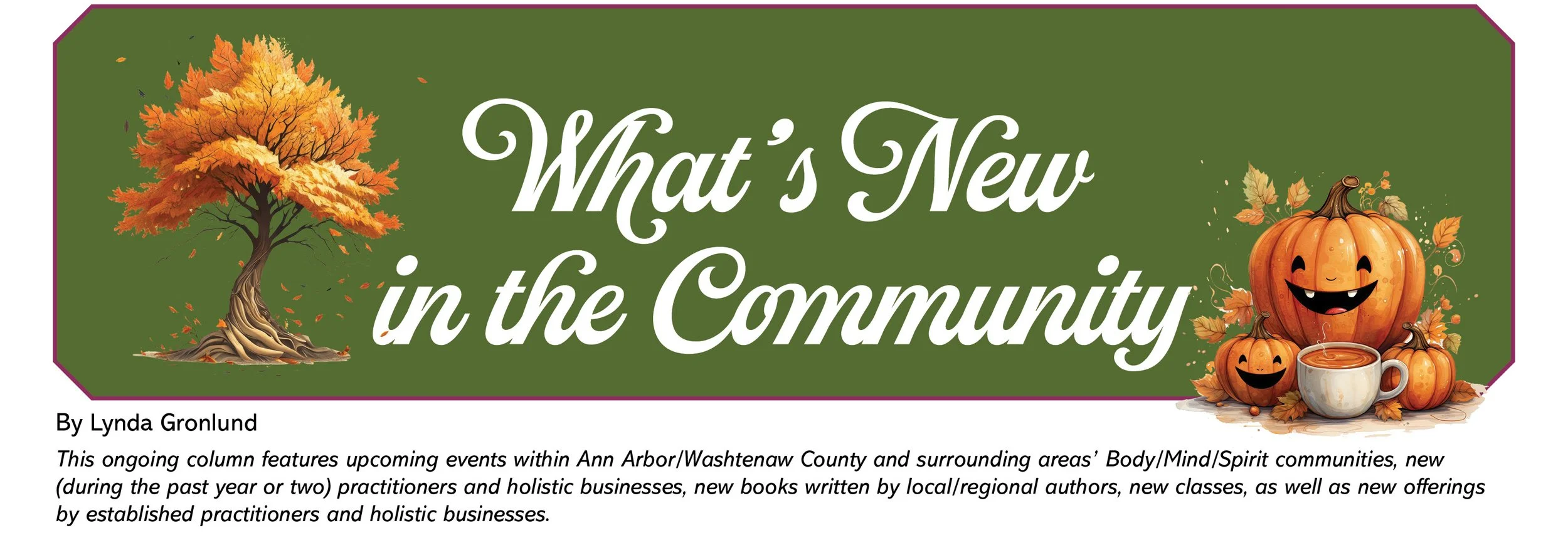
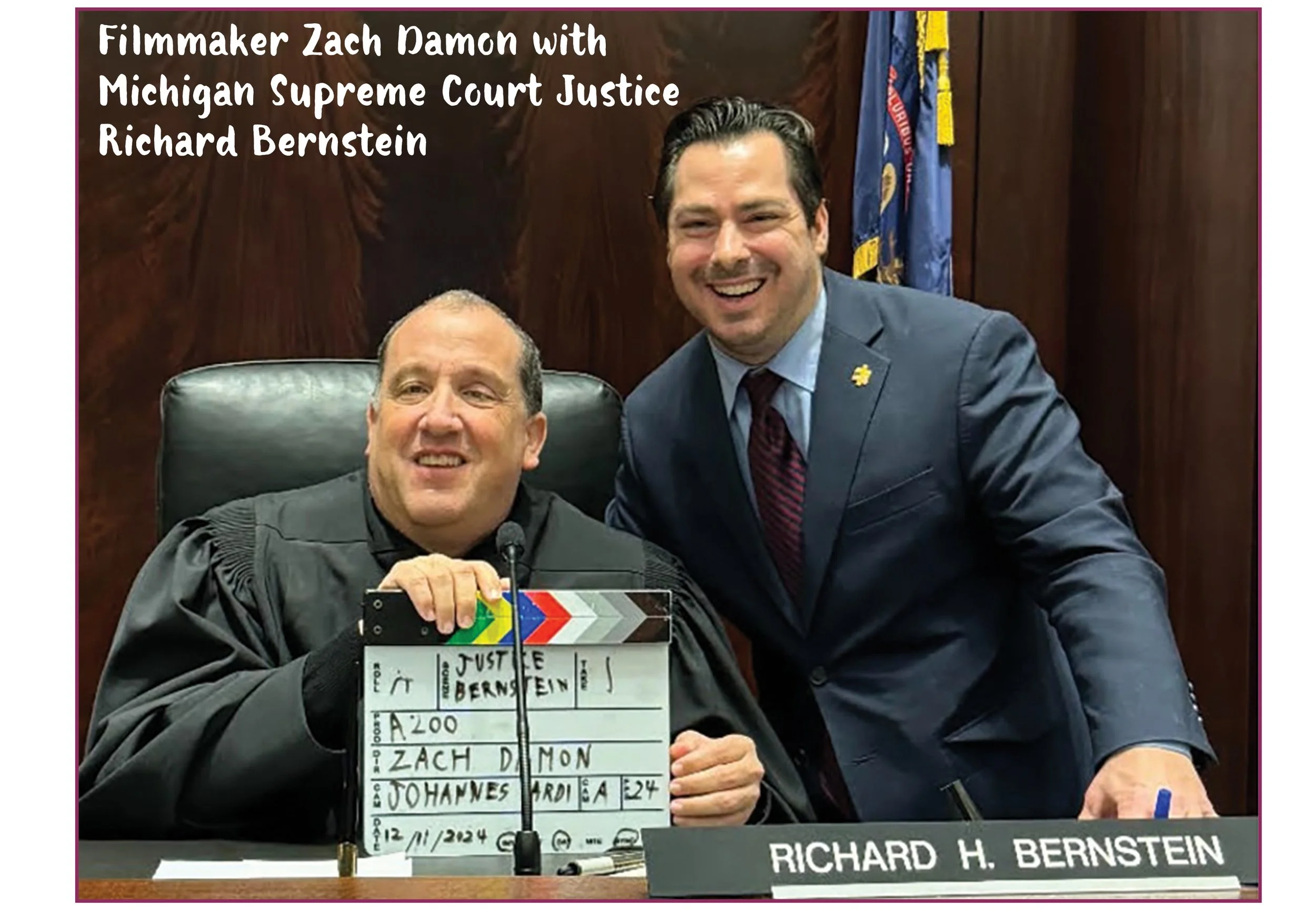

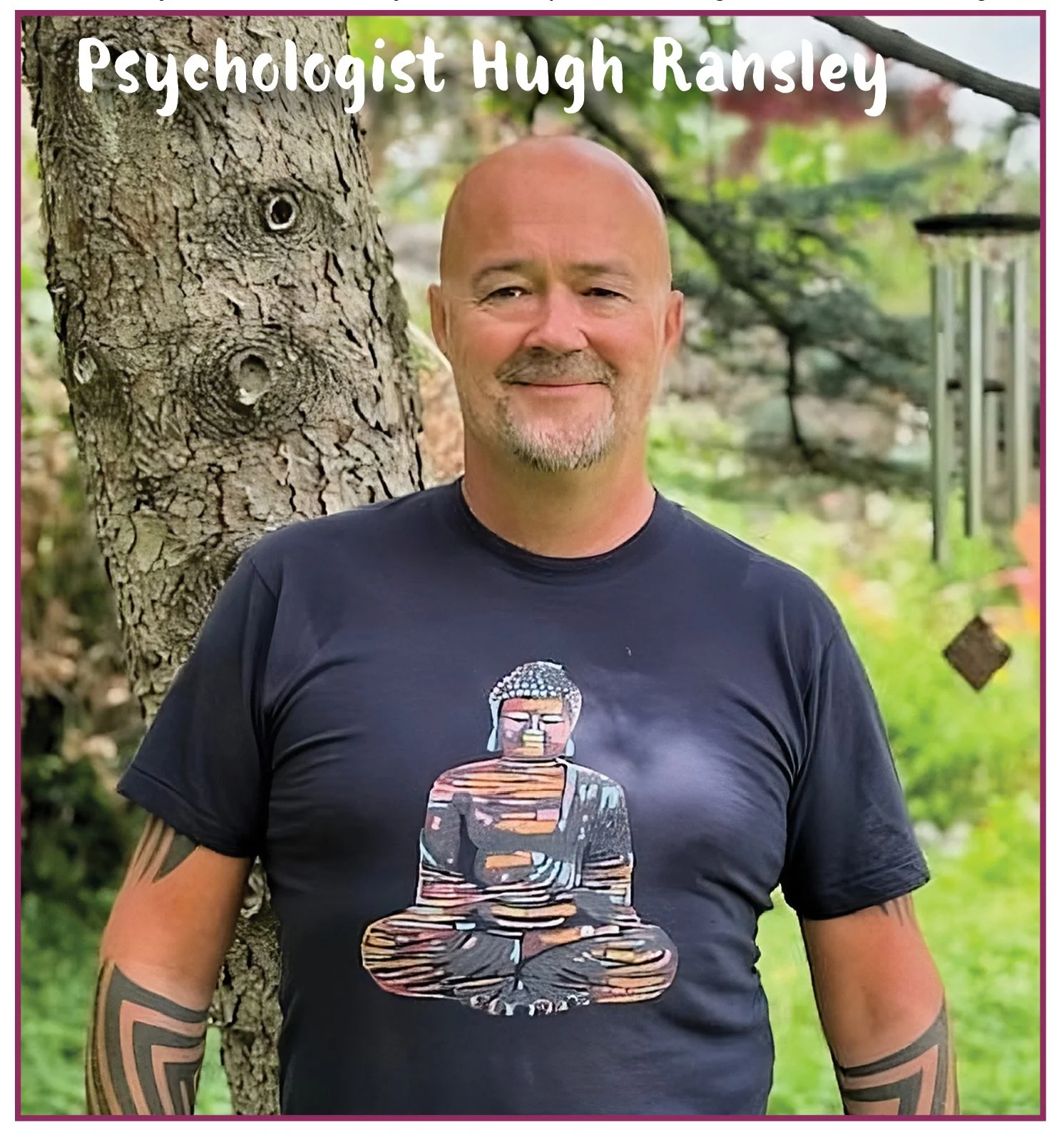

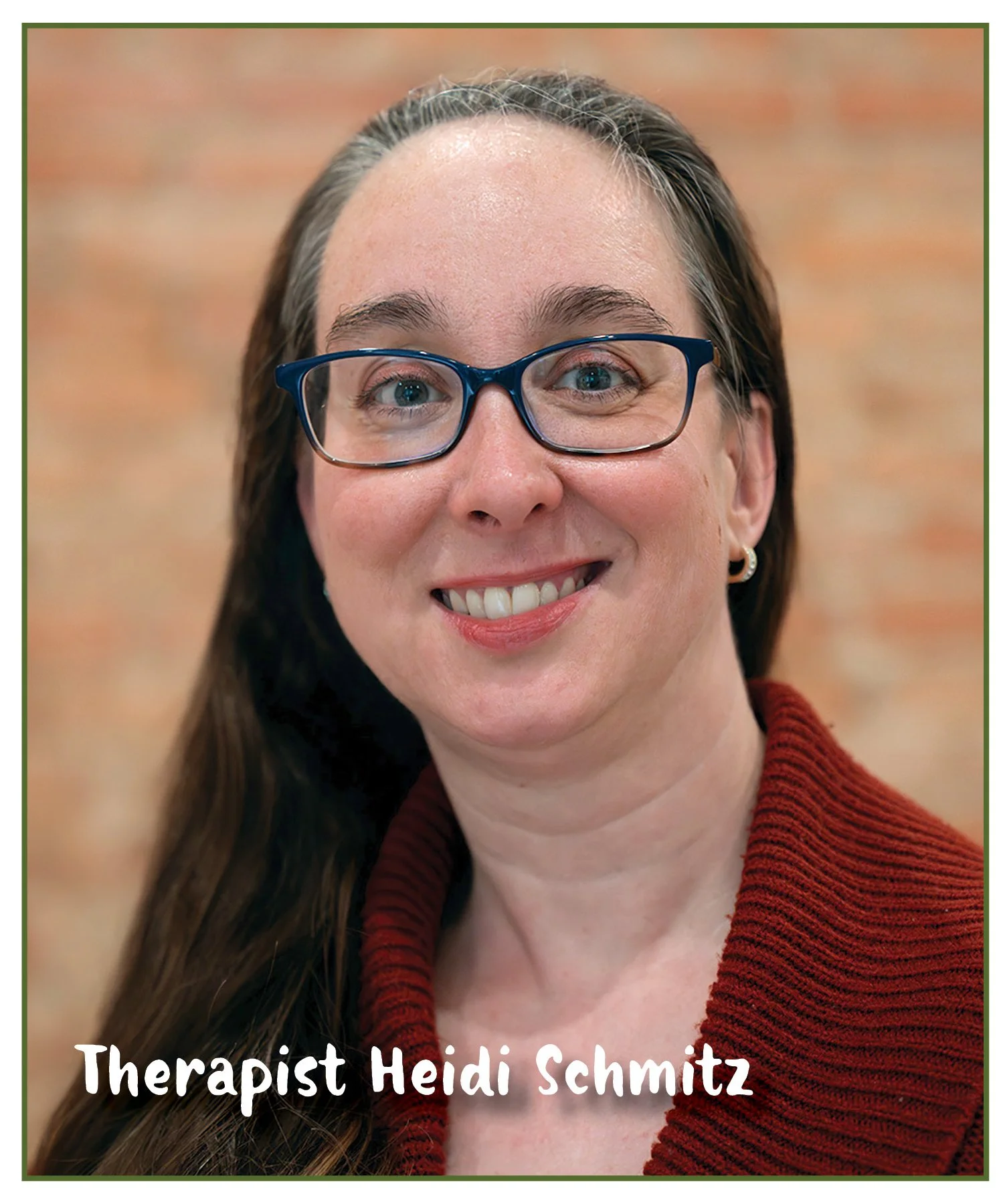

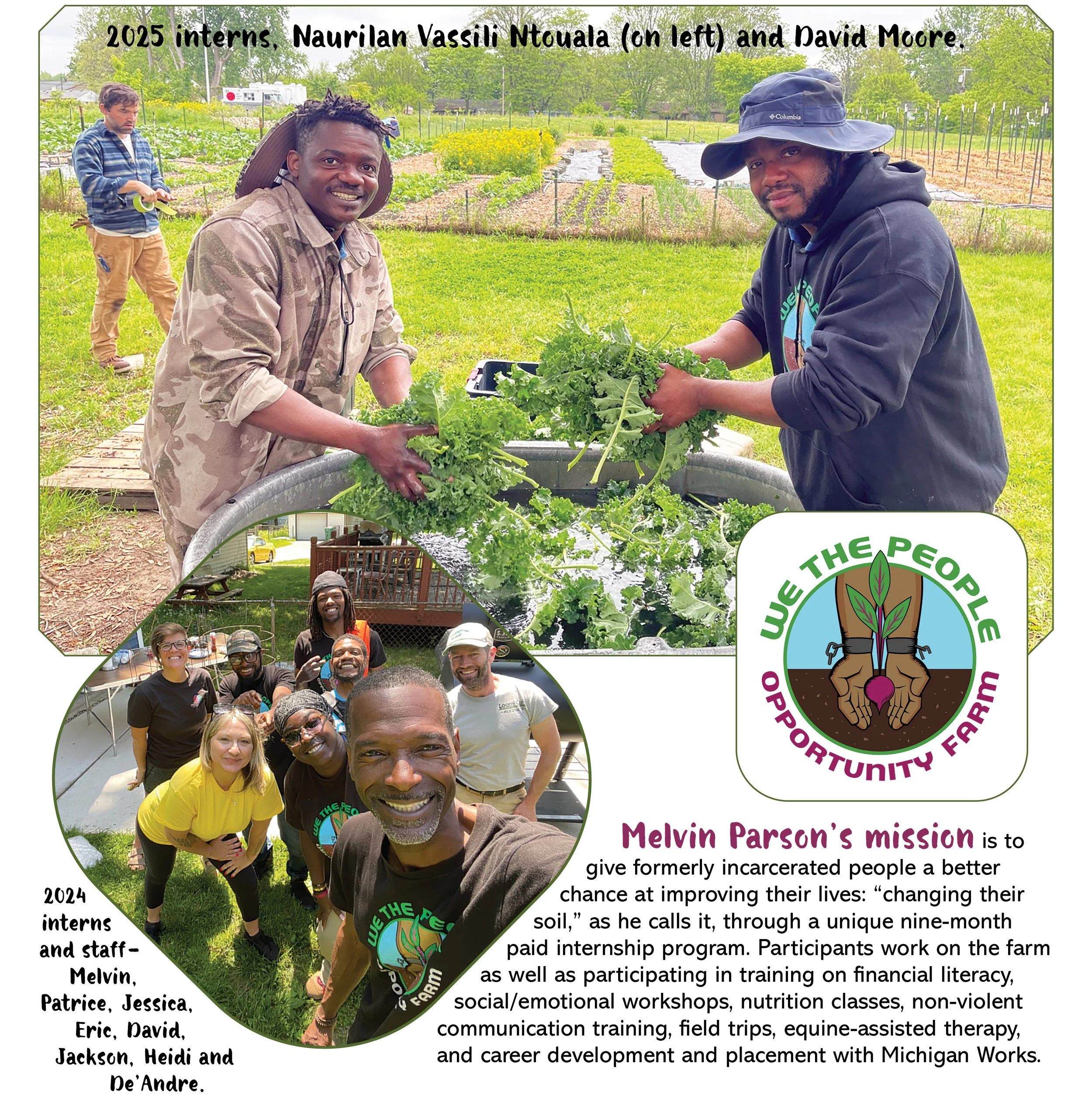
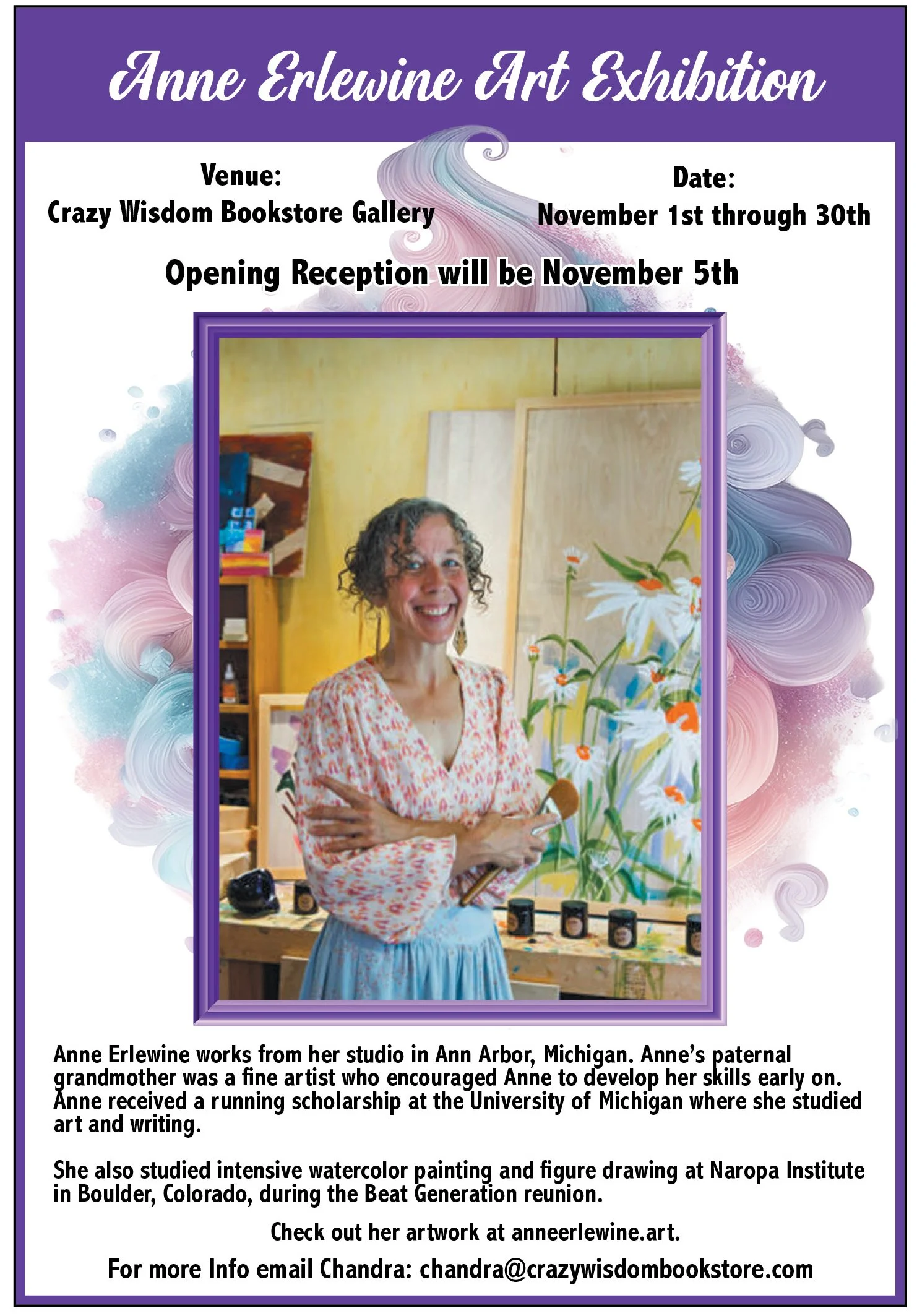
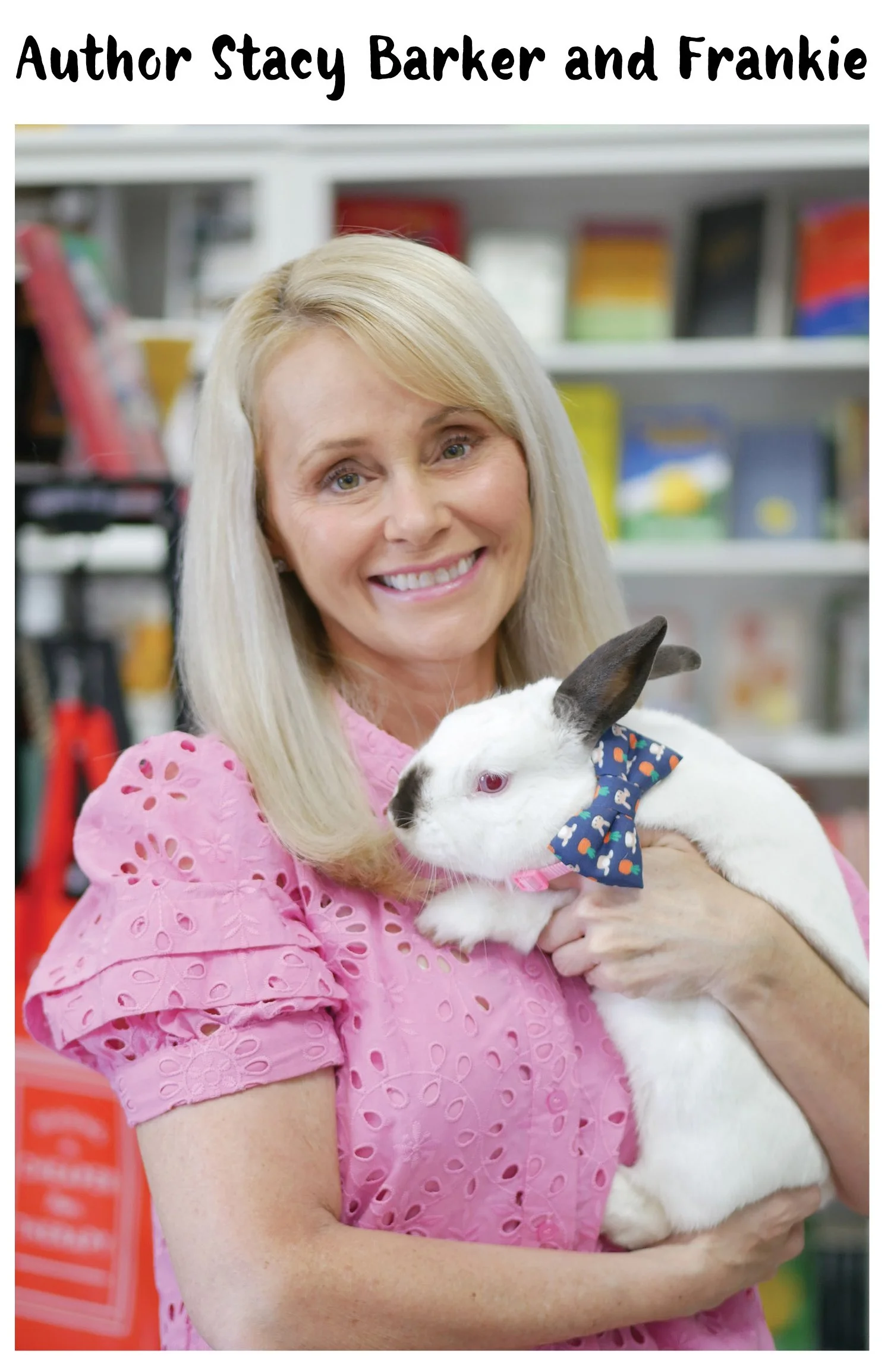



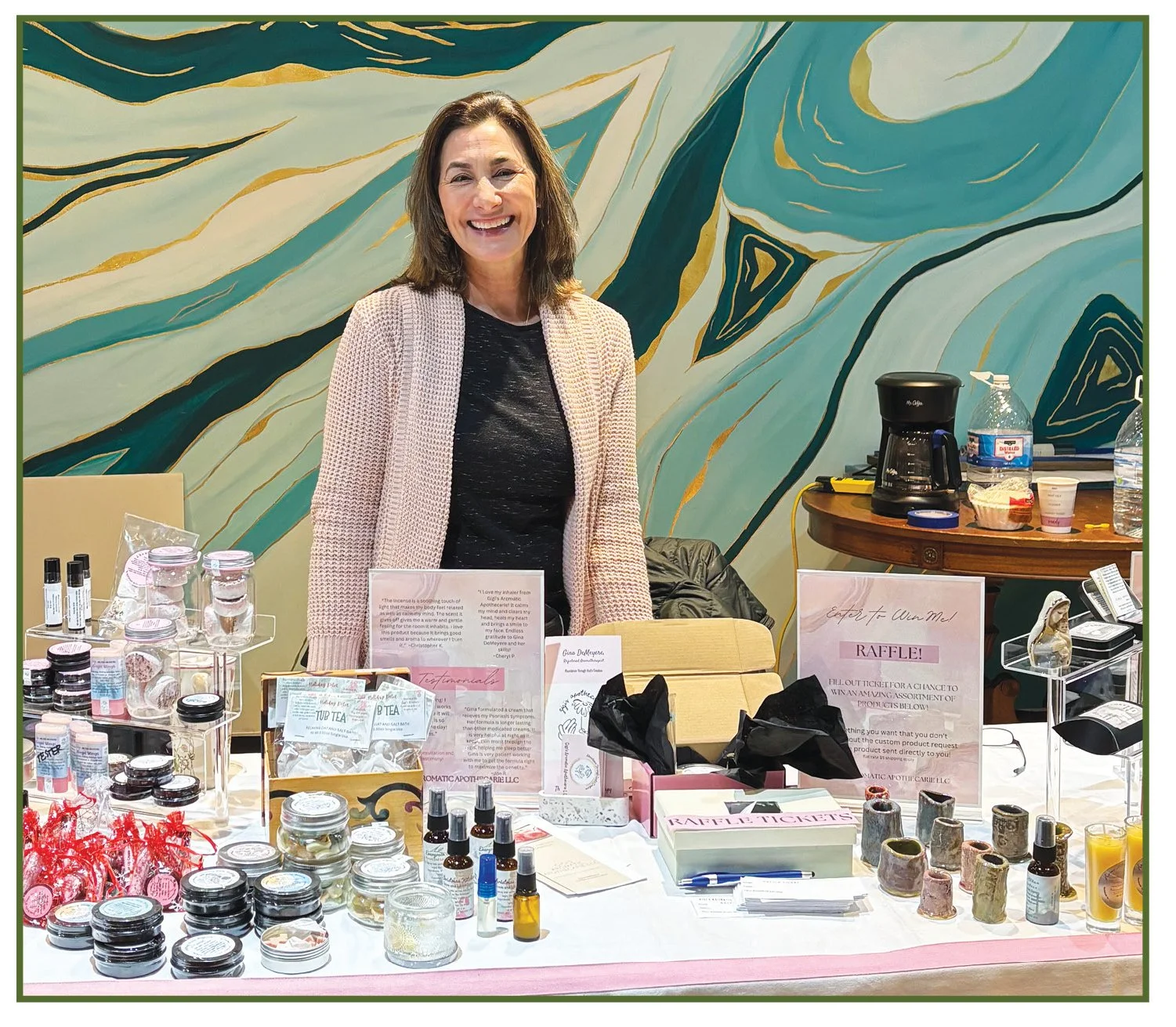
























































































































































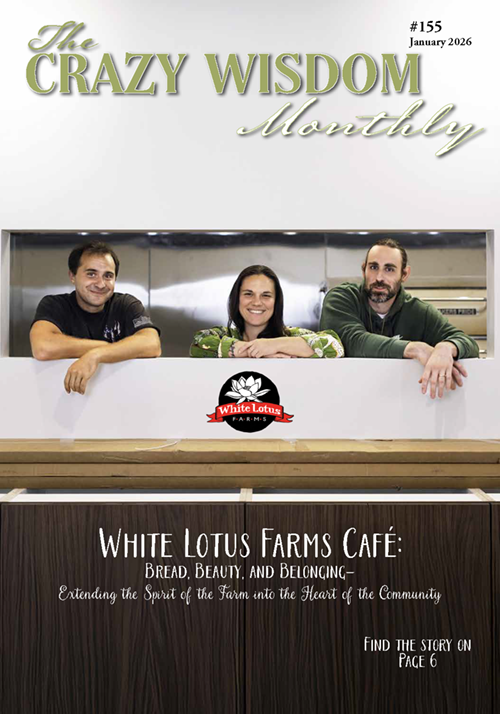









































The moon has a way of catching a child’s eye. It lingers above treetops, follows the car home, disappears for a few nights, then returns—quiet, steady, familiar. For parents, it’s a reminder to pause, to notice, and to reconnect with something simple yet deeply grounding: the rhythm of nature itself.